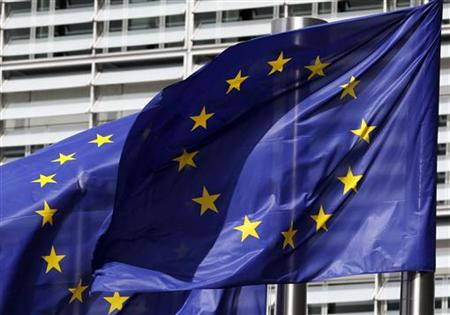Tory Euro Wars Erupt Again with William Hague and Ken Clarke Wading Into Fray

The Tory party has been pitched into a new outbreak of internecine Euro wars with fresh rows erupting over immigration and national vetoes undermining Prime Minister David Cameron's hopes of keeping a lid on the issue.
First a powerful 95-strong group of group of Tory MPs wrote to Cameron urging him to press for national parliaments to have a veto over any future EU legislation they believe might harm their national interests.
They were immediately slapped down by Foreign Secretary, and leading Eurosceptic William Hague, who told them the demand was unrealistic and would, in effect, make the EU unworkable. Which, of course, is precisely what most of the rebels want but are reluctant to say in public.
Then, in a separate development, cabinet minister and Euro enthusiast Ken Clarke broke government ranks on the issue of migration, saying: "I just don't think it's true that the European Union is responsible for unacceptable waves of migration".
And he hit out at opponents, saying: "The idea that you can have some fundamental debate that somehow stops all these foreigners coming here is rather typical right wing, nationalist escapism, I think."
So, for the umpteenth time, the issue of Europe which did so much to undermine previous Tory leaders from Margaret Thatcher on, has again broken the surface.
It was always likely the issue would rise up the agenda as this May's European parliament elections drew closer. But the prime minister had always hoped his promise of an "in-out" referendum in 2017 would take the sting out of the debate within his party.
If national parliaments all around the EU were regularly and unilaterally able to choose which bits of EU law they would apply and which bits they wouldn't, the European single market wouldn't work.
But, with the legislation implementing that pledge facing long delays and possible defeat in parliament, the prospect of new migrants entering Britain causing real headaches for the government and the apparently unstoppable rise of Ukip, the uneasy truce has broken down.
What all recent Tory leaders have learned is that the a large number of the party's Eurosceptics will never be satisfied with any concessions but will always press for more. Their ultimate, if not always-stated aim, is to see the UK withdraw from the EU.
There are even those in the party who believe some of the rebels would rather lose an election if it meant them keeping their ideological, anti-EU purity.
The letter to Cameron calling for him to seek a national veto on any new rules coming from Brussels is already being seen as part of that wider campaign for ultimate withdrawal.
Even Hague, who has always been viewed as one of the most Eurosceptic of ministers, rejected the suggestion saying: "If national parliaments all around the EU were regularly and unilaterally able to choose which bits of EU law they would apply and which bits they wouldn't, the European single market wouldn't work".
His reassurance that the government would continue to fight for a reformed Europe, with national parliaments having a stronger role, is unlikely to cut much ice with the rebels.
Even those Tories who fundamentally disagree with the sceptics have been spooked by the rise of Ukip and its leader Nigel Farage who they believe may well win the EU elections in May and even threaten the hopes of a Tory victory in next year's general election.
And, at the moment, many of the government's big challenges – immigration, welfare tourism, unemployment, - can be linked by the sceptics, in some way or another, to the EU.
What many on the Tory benches want is for the prime minister to finally take his rebels on and demand they come clean on their agenda of withdrawal rather than hiding behind talk of reforms.
But that would represent a huge escalation of the row which might ultimately do more harm than good to Cameron's hopes of re-election. So, he is caught.
The best he can probably do is keep up with the reformist rhetoric in the hope that will do enough to damp down the more outlandish demands from his rebels. At the moment, there is little sigh that is doing the trick either.
© Copyright IBTimes 2025. All rights reserved.






















